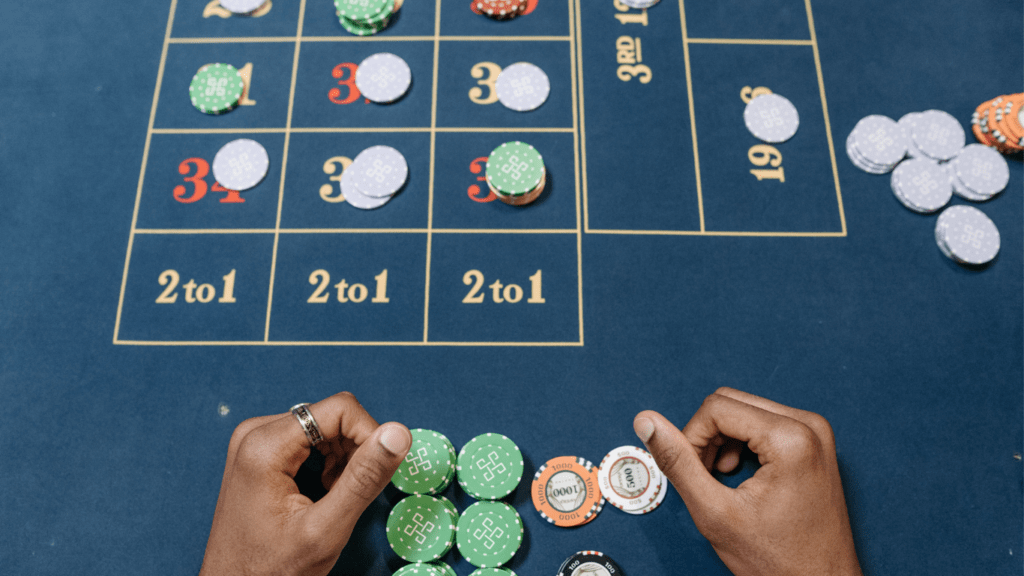Understanding the Science Behind the Jackpot
Analyzing the science behind jackpots reveals how psychology intertwines with gambling. By deciphering these psychological elements, I can uncover strategies that impact betting behavior.
Historical Overview of Betting
Betting has a rich history dating back thousands of years. Ancient cultures, like the Chinese and Romans, engaged in rudimentary gambling activities. These early practices laid the foundation for today’s complex betting systems.
During the 17th century, organized lotteries emerged in Europe, providing funds for public projects. The 20th-century boom in casinos and online platforms transformed betting into a global industry. Throughout history, the appeal of betting has remained consistent, yet the methods and platforms have continually evolved.
Key Psychological Concepts in Betting
Several psychological concepts influence betting behavior.
- The illusion of control leads individuals to believe they can influence outcomes. For instance, players might think they can affect the roll of dice by employing superstitions.
- Near-miss experiences motivate players to continue betting, as narrowly missing a win creates a heightened sense of anticipation, like nearly winning on a slot machine.
- The availability heuristic causes people to overestimate their chances of winning when they hear about or witness others’ victories.
- Reinforcement schedules, used in slot machines, keep players engaged by providing intermittent wins, thereby sustaining hope and prolonging play.
These concepts underscore the brain’s intricate role in the betting process.
Analyzing Common Psychological Strategies
Psychological factors significantly shape betting strategies by influencing risk perception and decision-making processes.
Risk Assessment and Reward System
Gamblers assess risk-reward ratios, often skewed by psychological biases. Anticipation of jackpots triggers the brain’s reward circuit, releasing dopamine.
This neurotransmitter, associated with pleasure, reinforces betting behavior, making losses less impactful. Studies indicate that intermittent wins heighten the excitement of potential larger rewards. Awareness of cognitive biases can improve risk evaluation, leading to more informed betting strategies.
Overconfidence in Betting Decisions
Many bettors overestimate their ability to predict outcomes. This overconfidence stems from familiarity with betting environments or past wins. Gamblers convince themselves they’re more skilled than others, often basing decisions on perceived patterns or trends with little basis in reality. This illusion leads to riskier bets and potential financial loss. Recognizing overconfidence aids in establishing realistic expectations and healthy betting habits.
The Role of Superstitions
Superstitions profoundly affect gambling behavior, with bettors often attributing luck to rituals or talismans. Whether it’s wearing a “lucky” item or betting on a “favorable” day, these beliefs provide perceived control. Despite no logical basis, the emotional comfort of superstitions can influence betting choices.
Understanding and managing reliance on these beliefs ensures they don’t skew decision-making processes away from rational evaluation.
The Impact of Technology on Betting Strategies

Technology significantly reshapes betting strategies for gamblers. Digital advancements redefine how betting options are presented and processed.
Online Gambling Platforms
Online gambling platforms open up new possibilities for bettors. They offer convenience and accessibility, as players can place bets from anywhere at any time.
These platforms provide a wide variety of games and betting options, allowing users to tailor their experiences. Tools like virtual slot machines replicate traditional casino environments.
Enhanced graphics and interactive elements make the experience more engaging, often tempting players to spend more time and money.
Player data and analytics help platforms personalize recommendations, targeting individual preferences and behaviors. This targeted engagement leads to increased betting activity and, in some cases, riskier betting patterns.
Algorithms and AI in Betting
Algorithms and AI revolutionize betting by offering precise analysis and predictions. AI processes vast amounts of data, identifying patterns and trends that humans might miss.
This depth of analysis improves odds calculation and game outcomes. Predictive models assist bettors in making informed decisions. However, the same technology aids gambling companies by optimizing game designs to maximize user engagement and revenue.
Machine learning techniques allow for dynamic changes, adjusting odds and strategies in real time based on player behavior. As AI grows more sophisticated, it continues to influence how bettors approach gambling, often swaying decisions with the promise of strategic insights.
Ethical Considerations in Betting Strategies
While engaging in betting, I consider the ethical implications that come with employing certain strategies. Responsible gambling aids in ensuring that betting remains a form of entertainment rather than a detrimental habit.
Responsible Gambling Initiatives
I find responsible gambling initiatives essential for promoting safe betting environments. These programs raise awareness about gambling-related risks and provide resources for those in need.
Casinos and online platforms often implement self-exclusion options allowing players to take breaks.
Additionally, tools such as:
- deposit limits
- time-tracking systems
- age verification
work to enhance player protection. Educational campaigns further inform bettors about the odds, encouraging informed decisions.
The Balance Between Strategy and Addiction
Balance is crucial in maintaining control over betting habits. While strategic betting can enhance enjoyment, it’s vital to recognize when it borders on addiction. I spot signs of addictive behavior by monitoring time spent and financial impact.
Conscious self-assessment helps in identifying potential problems early. Betting strategies that focus solely on maximizing winnings can lead to obsessive behavior, detracting from the enjoyment of gambling as entertainment. Incorporating limits and self-awareness ensures that the thrill of betting does not result in harmful consequences.



 Pearlee Conleyora
Founder
Pearlee Conleyora is the visionary founder of Jackpot Lucky Deal, a platform dedicated to bringing jackpot enthusiasts the latest news, effective strategies, and insights into the ever-evolving world of jackpots and gaming. With extensive experience in online gaming and a keen understanding of the growing role of cryptocurrency in jackpots, Pearlee created Jackpot Lucky Deal to serve as a trusted resource. Her commitment to responsible betting and innovative jackpot strategies shines through every aspect of the site, ensuring that users not only have the tools to play smarter but also stay updated on trends and technological advancements in the gaming world. Pearlee’s leadership and forward-thinking approach are the backbone of Jackpot Lucky Deal, where her goal is to create a comprehensive, user-friendly platform that empowers both novice and seasoned jackpot players.
Pearlee Conleyora
Founder
Pearlee Conleyora is the visionary founder of Jackpot Lucky Deal, a platform dedicated to bringing jackpot enthusiasts the latest news, effective strategies, and insights into the ever-evolving world of jackpots and gaming. With extensive experience in online gaming and a keen understanding of the growing role of cryptocurrency in jackpots, Pearlee created Jackpot Lucky Deal to serve as a trusted resource. Her commitment to responsible betting and innovative jackpot strategies shines through every aspect of the site, ensuring that users not only have the tools to play smarter but also stay updated on trends and technological advancements in the gaming world. Pearlee’s leadership and forward-thinking approach are the backbone of Jackpot Lucky Deal, where her goal is to create a comprehensive, user-friendly platform that empowers both novice and seasoned jackpot players.

